With a painted white face and head, wearing an all-white ensemble save for long black gloves and gigantic black platform stiletto boots, Gena Marvin teeters as she balances on snow-covered rocks. She poses for a photograph, the sea rippling gently in the background behind her contorted figure, frozen still in the arctic chill.
It’s a striking scene that opens the new documentary “Queendom,” which follows the queer Russian performance artist as she creates artwork that challenges societal expectations and political situations — and the backlash she faces for it.
Wearing ethereal costumes made of found materials such as wire and tape, and donning striking, alien-like make-up, Marvin pushes her body to extremes in her performances, often in public places on the streets of Moscow, and in defiance of the Russian government.
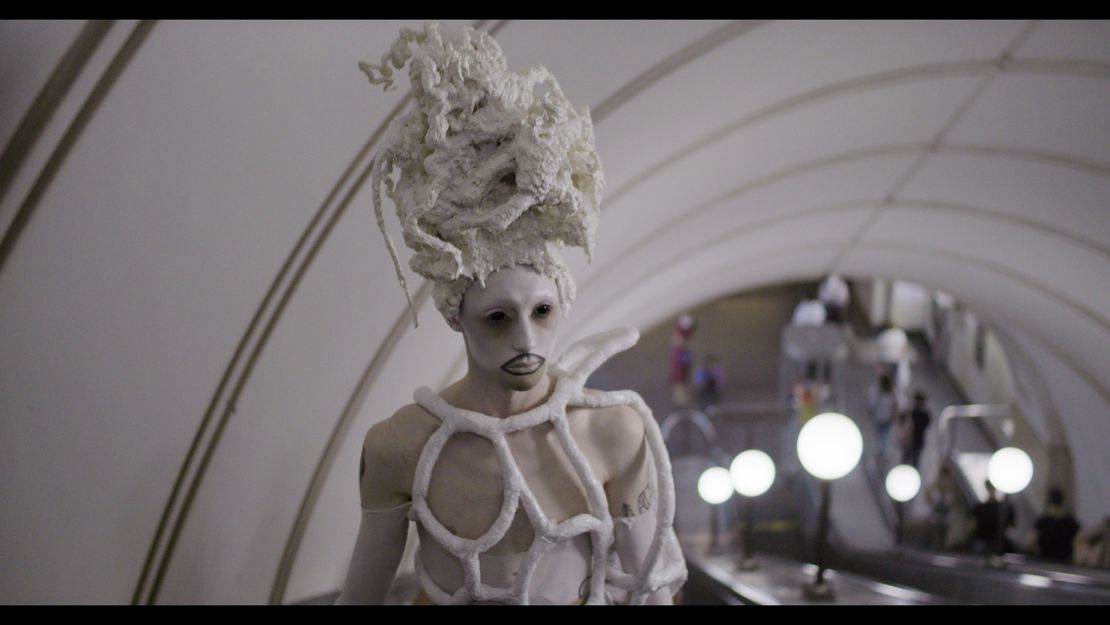
Yet the performances, and Marvin’s very existence as a queer person, are not without their risks, including physical violence, threats and homophobic abuse. Immediately after the photoshoot in Magadan, Marvin’s small hometown in the far eastern Kolyma region of Russia, she is escorted out of a local supermarket by security guards who tell Marvin that she’s disturbing the peace and should stay out of the store.
Another performance sees Marvin tape the colors of the Russian flag around her body and walk as part of an anti-police protest calling for the freedom of Russian opposition leader Alexey Navalny. The action ultimately results in Gena’s expulsion from college in Moscow for “expressing a negative view towards the government”.
Yet, Marvin, who is non-binary, remains defiant and pursues her art despite the dangers. “Whenever I go out in character, I’m on top of the world. No-one, even here in Russia, can scare me. I’m like a knight in armor,” she says in the film, which premiered at SXSW, and has since won awards at film festivals in Copenhagen and London.
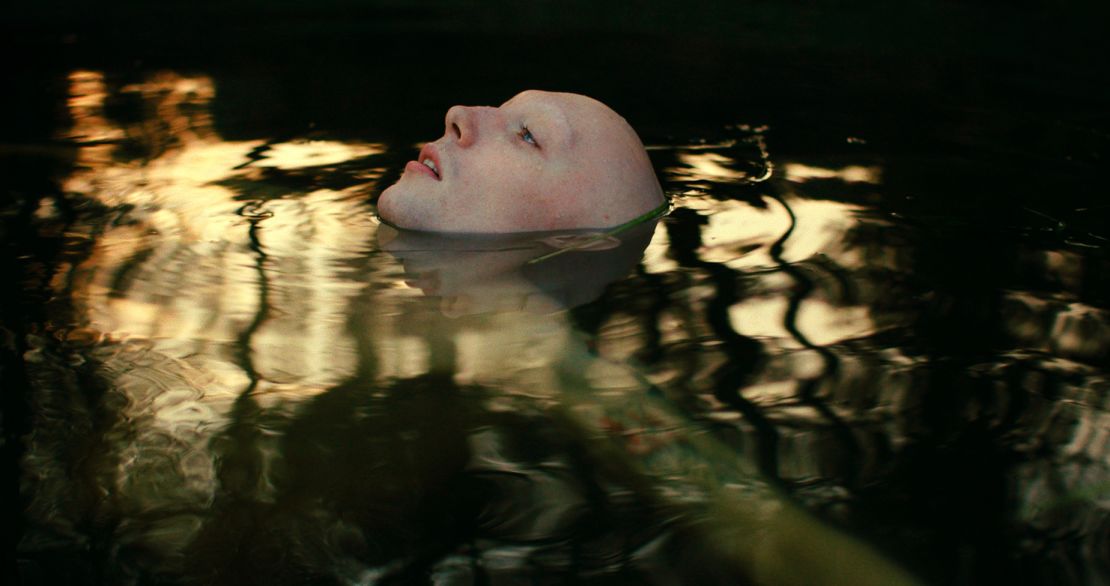
Filmmaker Agniia Galdanova had originally wanted to create a story about Russia’s drag community as part of a series, with multiple protagonists. “But when I met with Gena, I quickly realized I didn’t need another protagonist,” said Galdanova in a video interview with CNN. “The idea was to bring onto the screen the story of people who really have no voice in Russia, not just to point out the social problems, but also to celebrate queerness and to show the beauty of this world.”
“We wanted to really show the love, and the art, and the freedom, and the fight, of those that have been silenced,” explained Marvin in an interview via translator .
Showing that joy takes on new urgency within the intolerant environment for LGBTQ+ people in Russia today. In recent years, the government has included an explicit ban on same-sex marriage in the country’s constitution, designated several LGBT+ organizations as “foreign agents,” and in 2022, the “gay propaganda law” banned all mentions of LGBTQ+-related topics in the media. On 30 November, Russia’s Supreme Court declared what it has labelled the “international LGBT public movement” as an extremist organization, potentially leaving LGBT activists broadly vulnerable to criminal prosecution even though no such organization exists.
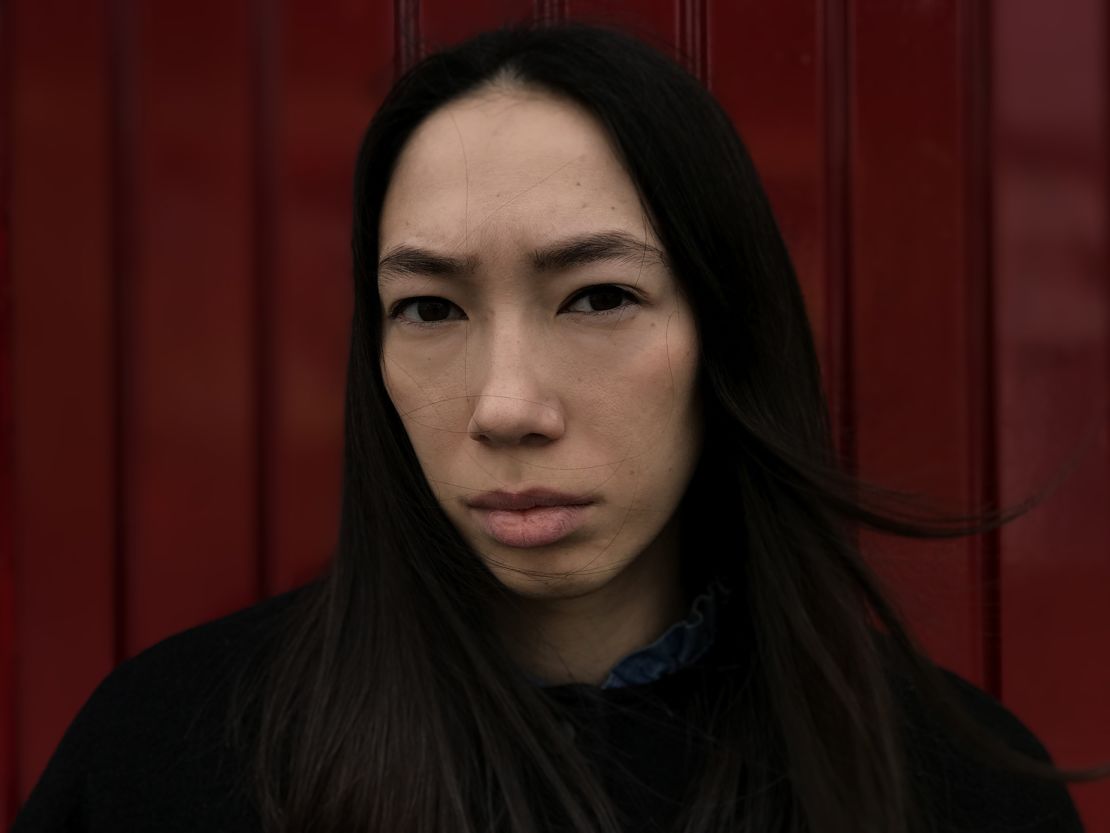
Throughout the film, Marvin experiences this hate and intolerance, whether it’s being beaten or abused while in public, or chastised by her grandparents for not following a traditional job or career path. Their relationship is often a fraught one that Galdanova felt essential to highlight in the film.
“I think about our relationship as a universal story that happens a lot,” said Marvin, reflecting on her relationship with her grandfather in particular. “A queer person is born into the family, and slowly the relationship becomes better but never to the point of full acceptance, and that’s a reality in Russia unfortunately. What I find strength in, and where I see the light, is the fact that while my grandparents and I are very different, love connects us. I see love coming from my grandfather, and I’m sure he sees love coming from my side too. But I understand we will still be in the darkness because he will never understand truly who I am.”
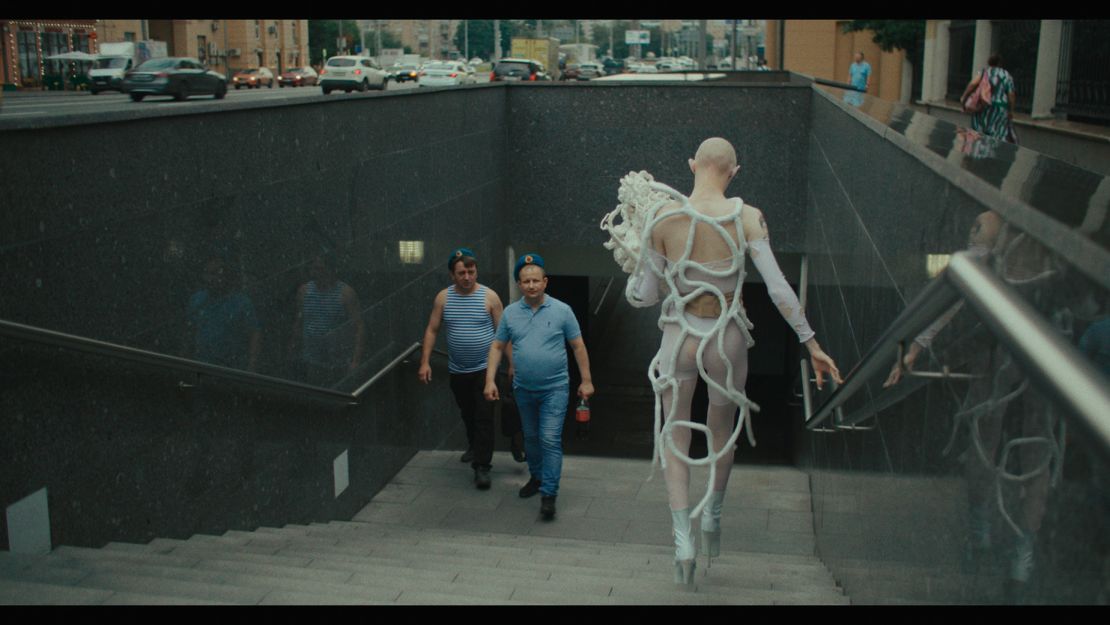
As “Queendom” was filming in April 2021, Russia invaded Ukraine. Scenes from the film show Marvin taking part in anti-war protests, being arrested, and then summoned to court for evading the military draft. This marked a turning point for her. “I realized the heaviness of the situation. I didn’t want to be in jail, or participate in this war and kill other people. That was definitely not an option,” said Marvin, who cut contact with her grandparents during this time for their safety. In April 2022, Marvin moved to Paris. She has since been granted asylum and has built a life and community there, having walked in the recent Paris Fashion Week for Chinese label Windowsen.
While the film focuses on Marvin’s journey from Magadan to Moscow, and eventually Paris, she and Galdanova say that the broader issues the film raises are universal. “The film is really not about my own personal experience, or about me. It’s so much bigger: it’s about a whole spectrum of queer experience. It’s about the fact that a traumatized generation had to raise people like us, which was unbearably difficult,” says Marvin.
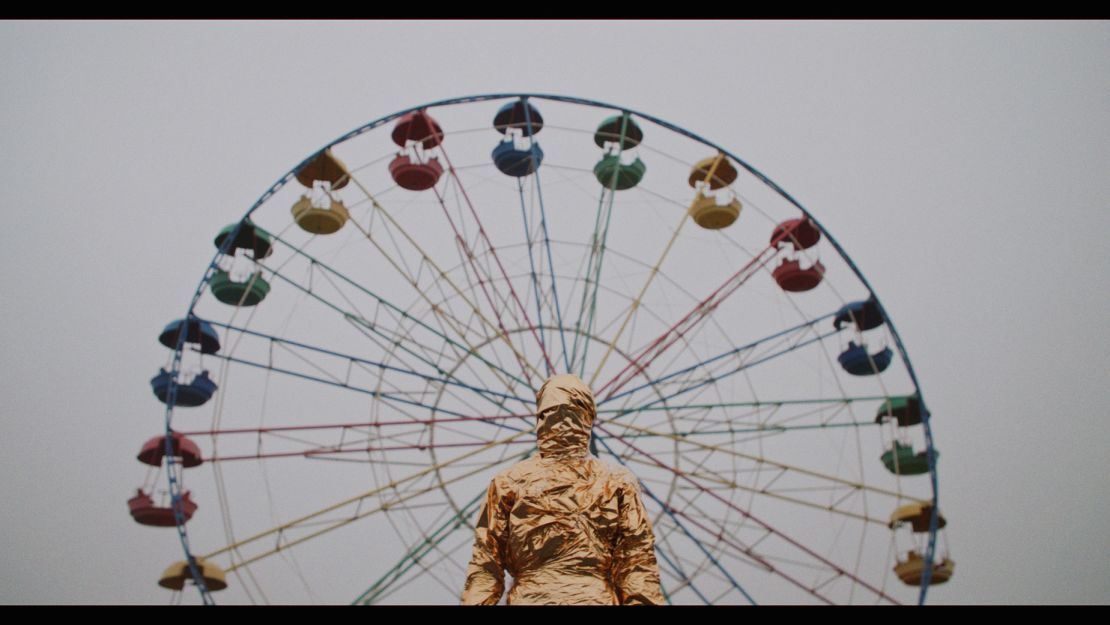
Galdanova, who had originally intended to make this film for a Russian audience, said her hope is that people outside the country will have greater awareness of the situation for Russia’s queer community. Marvin is reflective too of how the film shows the impact of anti-LGBTQ+ rhetoric and legislation on family members, including her own grandparents. “This film shows what it was like in the past, how it’s like now, and how it affects people who unfortunately have to flee the country. I see this film as a document and record of that time.”
QUEENDOM is out now in the UK and Ireland. Check here for information about future releases.



